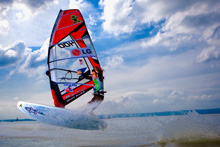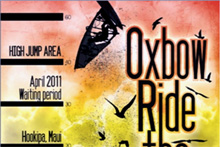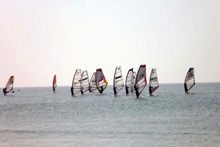
More than 400 people died from accidents or natural causes in water across the UK in 2009, according to the first report from a new incident database. WAID (the WAter Incident Database) was developed by the National Water Safety Forum (NWSF) to enable greater detail and volume in the collection of data on fatal and non-fatal drowning, other water-related deaths and injuries, and near misses.
Of the 405 fatalities in 2009, more than half (213) came as a result of incidents in inland waters, which include rivers, lakes, lochs, reservoirs, canals and ponds. Nearly a quarter (99) happened at the coast or in a harbour, dock, marina or port, while one in seven deaths (57) happened further out at sea. There were 19 deaths as a result of incidents in baths, five in swimming pools and one involving a water container. Eleven people died in places that are not usually watercourses, for example flooded areas.
Under-19s accounted for 59 of the fatalities, of whom 14 died as a result of incidents in rivers (predominantly teenagers), seven in baths (mostly 0-2 year olds) and six in ponds.
Deaths happened during a wide variety of water-based activities. Forty-eight of those who died were swimming at the time of the incident, 27 were angling and 20 were sub aqua diving. The most commonly-reported activity, however, which accounted for 78 fatalities, was someone entering the water while walking or running, for example to cool off or by falling. A further 17 fatalities happened after motor vehicles entered water.
Saturday was the most common day and August the most common month for fatalities to occur.
David Walker, a member of the NWSF and operations manager at the Royal Society for the Prevention of Accidents (RoSPA), said: “As the figures for 2009 sadly reveal, drowning is one of the leading causes of accidental death in the UK. WAID will greatly enhance our understanding of water-related incidents that claim lives and cause injuries across the UK each year. Managing water risks is all about a balance between giving people freedom to make informed choices about how to enjoy water and the impact those choices have on society in general. By providing better information, WAID will assist in striking that balance and enable us to develop more effective prevention work. Working together to collect and share data means WAID members and communities will be able to better manage risks than if they worked alone.”
WAID was developed by NWSF members, including: national partners – British Waterways, British Sub Aqua Club, Maritime and Coastguard Agency, Royal National Lifeboat Institution, RoSPA and Royal Life Saving Society; sports governing bodies; and regional and local organisations, including Cornwall Council. It has been developed in partnership with the Department for Transport. See www.nationalwatersafety.org.uk for more information and the report.





